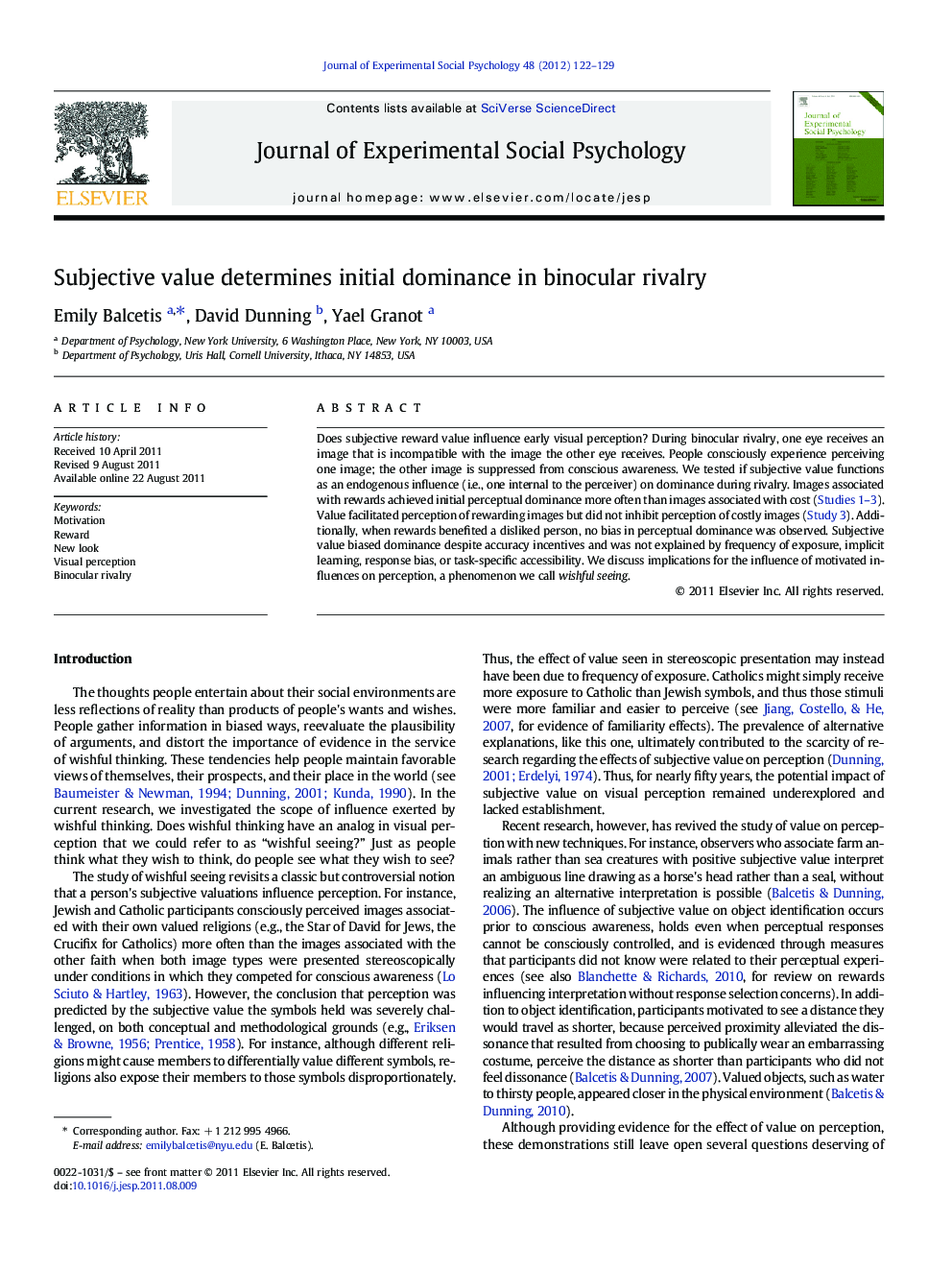| Article ID | Journal | Published Year | Pages | File Type |
|---|---|---|---|---|
| 948212 | Journal of Experimental Social Psychology | 2012 | 8 Pages |
Does subjective reward value influence early visual perception? During binocular rivalry, one eye receives an image that is incompatible with the image the other eye receives. People consciously experience perceiving one image; the other image is suppressed from conscious awareness. We tested if subjective value functions as an endogenous influence (i.e., one internal to the perceiver) on dominance during rivalry. Images associated with rewards achieved initial perceptual dominance more often than images associated with cost (, , , , , , , , , , , , , and ). Value facilitated perception of rewarding images but did not inhibit perception of costly images (Study 3). Additionally, when rewards benefited a disliked person, no bias in perceptual dominance was observed. Subjective value biased dominance despite accuracy incentives and was not explained by frequency of exposure, implicit learning, response bias, or task-specific accessibility. We discuss implications for the influence of motivated influences on perception, a phenomenon we call wishful seeing.
► In three studies, we tested the impact of motivational states on perceptual experience. ► We focused on binocular rivalry, in which only one image of two shown each eye reaches awareness. ► Rewarding images more often achieved initial dominance in perceptual awareness than costly ones. ► Facilitation of rewarding images rather than inhibition of costly ones produced this phenomenon. ► Images benefiting a disliked person showed no such tendency to dominate in perceptual awareness.
